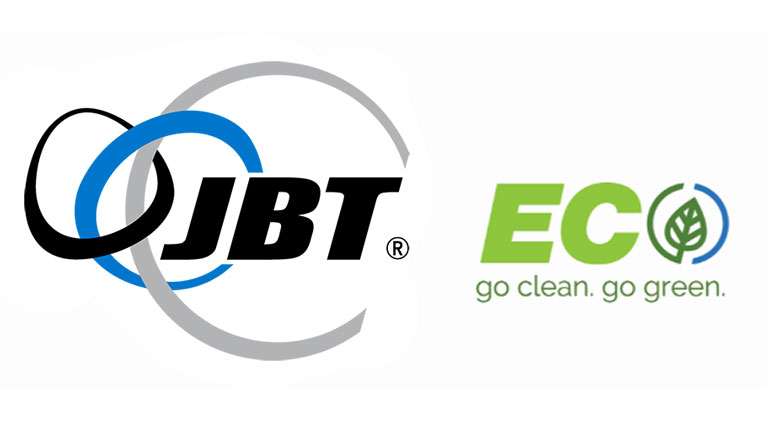Helping improve the environment takes many forms, from extending the useful life of foodstuffs to improved, greener production facilities. At JBT AeroTech, a key focus has been the continued development of innovative products and solutions that help our aviation customers reduce their carbon footprint. While we have been at it for more than 30 years, there is no doubt that we have accelerated our green initiatives in response to our customers’ demands for more environmentally friendly products. Today, being aviation’s “Provider of Choice” is all about developing and supplying reliable, greener products and services.
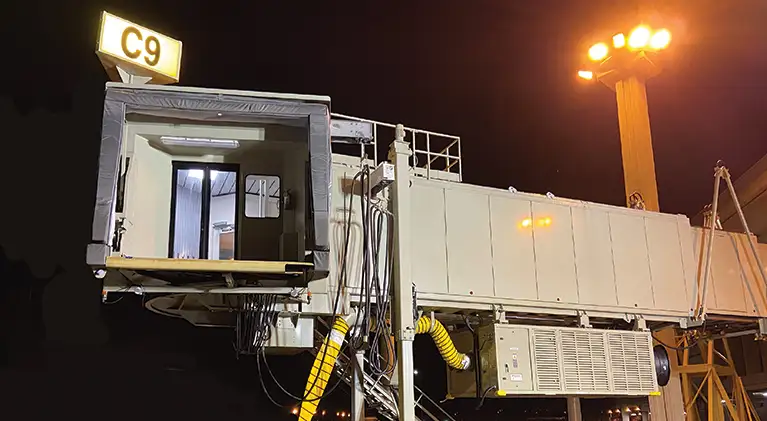
The challenge before us is significant. It is estimated that greenhouse gasses are produced at the rate of 50 billion tons per year. Corporate executives in all sectors are committed to reducing that number. A recent survey from Deloitte noted that 2,000 top executives ranked environment in the top three of their business issues. Another study by Bains and Schneider found that 4,000 companies have committed themselves to science-based carbon reduction. Companies within aviation have joined the movement to reduce GHGs. Key AeroTech customers, like Delta, FedEx, Amazon and DHL have set publicized goals of carbon neutrality by 2040 or 2050. Given that aviation accounts for about 3% of total GHG production or roughly 1.5 billion tons per year, these are admirable and lofty goals. Consider Delta Airlines recently announced $1 billion investment in their Delta Sustainable Skies Lab,
Delta Air Lines announced plans to launch the Delta Sustainable Skies Lab …supporting the company’s goal to achieve net zero emissions by 2050.
The aviation industry has come under scrutiny as a significant source of greenhouse gas (GHG) emissions, responsible for 2-3% of global emissions
Delta said that its new lab, aiming to bridge the gap between ideas and proven innovation, will focus on areas including clean fuel, efficient flying operations, revolutionary fleet concepts and sustainable travel & business practices.
Pam Fletcher, Delta’s Chief Sustainability Officer, said:
“This work is imperative for our planet and our business. We’ve seen how critical human connection is to thrive – and how travel is the great enabler. As we make progress toward our sustainability goals, we want to make sure our customers will feel as good about flying as they do about the connections made with the people and places we take them to. With aviation being a hard-to-decarbonize industry, none of us can do this alone. We’re rolling out the welcome mat for disruptors of choice to take advantage of Delta’s global resources to accelerate our path to decarbonization and a fully sustainable travel experience.”
To support its 2050 goals, the company said that the new lab will focus both on internal innovation … as well as on partnerships ….”
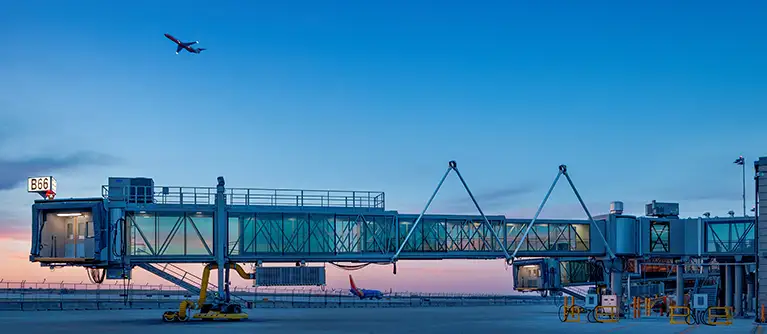
It was in the 1980s and 1990s that JBT revolutionized the commercial airline industry with the introduction and promotion of point-of-use, boarding bridge mounted, pre-conditioned air units and 400 Hertz electric power units. Today, JBT has thousands of these devices mounted at airport gates around the world. They are an aviation norm. The products allow aircraft to shut down their auxiliary power units (APU) for thirty minutes or more each time they come into a gate. This seemingly small operational change results in huge environmental benefits. Each gallon of jet fuel burned generates about 21 pounds of GHG. With aircraft APUs burning 34 to 114 gallons of jet fuel per hour and thousands of aircraft turns per day, we estimate our JetAire and Jetpower products save roughly 3.5M tons of GHG each year, just in North America. This is a significant environmental and financial benefit for our customers.
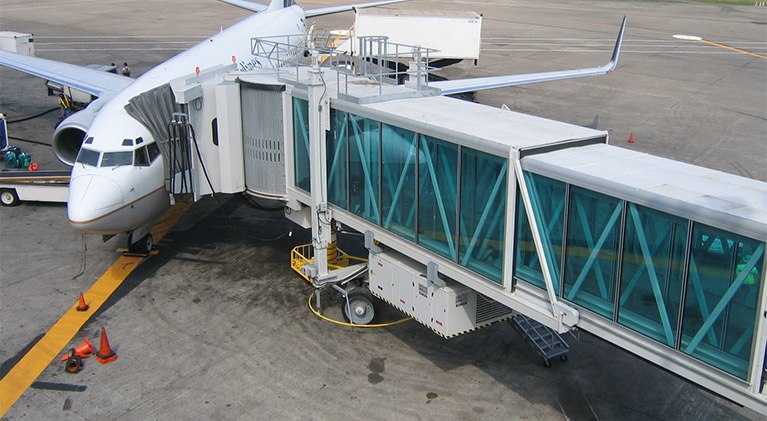
At JBT AeroTech we want to be a Provider of Choice, and now, we are stretching to become, in the words of Delta, a ‘Disruptor of Choice’ as we push the envelope of all-electric, low-greenhouse gas emitting products and services.
Of course, to be our customers’ “Disruptor of Choice,” JBT AeroTech continues to push the developmental envelope. In our Ground Support Equipment business unit, we have been experimenting with hydrogen powered cargo loaders and alternatives to Lithium-ion batteries. Many of these new designs have been done hand-in-hand with our cargo and commercial aviation customers. We are part of their innovation teams and efforts.
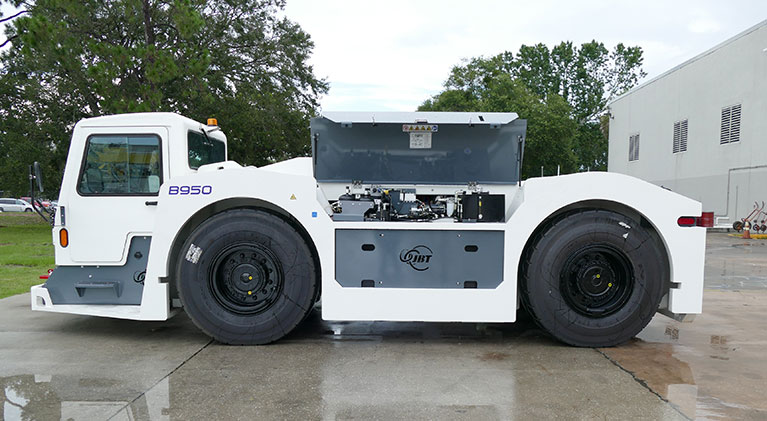
A key path for environmentally friendly ground support equipment involves electrification. In 2022, roughly 30% of AeroTech’s GSE business unit product sales were battery powered vehicles. AeroTech has recently added the B250 push back tractor, Ranger E cargo loader, and Commander 30i E loader to its existing stable of all-electric LEKTRO tugs and mobile stairs. This all-electric product evolution is accelerating through 2023 and beyond. Working with our customers, we are looking to introduce an expanded line of battery powered cargo loaders, push back tractors, cargo tractors, and cargo transporters in the coming months. It is safe to say that the bulk of our R&D engineering is dedicated to creating new, environmentally friendly products.
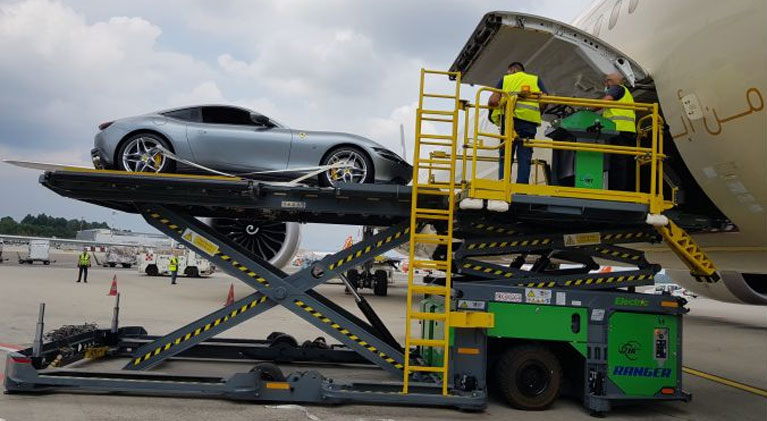
These efforts, like our pre-conditioned air and 400 Hz power products from years past, will result in measurable, meaningful reductions in GHG emissions and help our valued customers achieve their sustainability goals of carbon neutrality. Outfitting an airport gate or cargo port with these all-electric GSE vehicles will result in an estimated savings of 675 tons of GHG per year per gate. This is an exciting prospect for all of us at JBT.
Going green is not just a catch-phrase at JBT. It is a concerted effort of engineering development, customer collaboration, testing, and refinement. We are committed to being aviation’s Supplier of Choice and, in the world of sustainability, our customers’ Disruptor of Choice.
